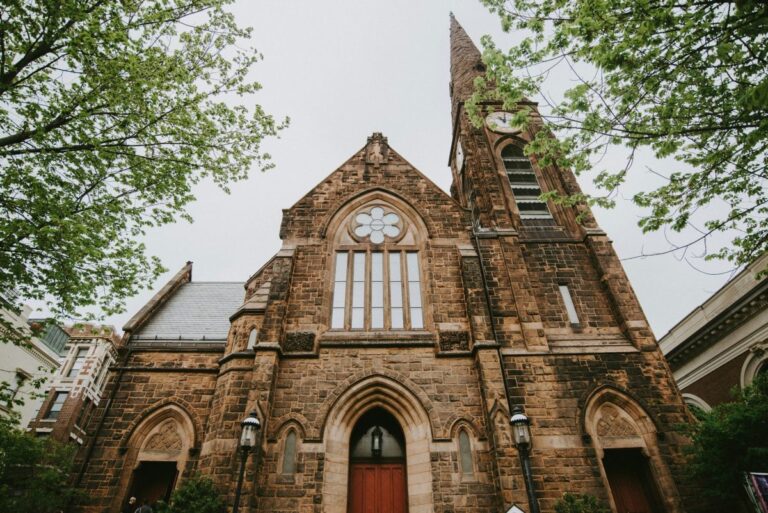The Ones Who Walk Away from Omelas (1973): Remains as Powerful as Ever
A master of the science fiction and fantasy genres, Ursula K. Le Guin wrote many novels and short stories about morally complex characters living in and exploring mystical lands and faraway planets.
The daughter of two accomplished anthropologists, Le Guin infused her fiction with anthropological and sociological perspectives and portrayed how societies function, falter, and impact citizens and visitors. Though her works usually take place in fictional locations, her characters and societies often deal with the same ethical dilemmas readers encounter in the real world.
Le Guin’s 1973 short story The Ones Who Walk Away from Omelas is perhaps her most famous work of fiction that examines a real-world philosophical issue through the lens of a fictional society. In this story, Le Guin asks whether our happiness is worth the cost of someone else’s suffering.
Omelas: A Shining City with a Dark Underside
https://gty.im/996084626
Le Guin’s story features an unnamed narrator describing the utopian city of Omelas as a beautiful, happy, vivid, and real place to their skeptical readers. The city sits nestled among natural beauty; its residents are mature, intelligent, and passionate. Its people have neither kings nor slaves; they don’t fight wars; they love music and art; they teach their children well; and they’re enjoying a beautiful summer festival. The narrator encourages their readers to picture the city with whatever additional elements they feel a perfect society should have.
Unsure whether readers would find the city believable, the narrator then explains how its beauty, peacefulness, and joy come at a steep cost. In a basement somewhere inside the city, an isolated child lives in appalling physical conditions. The child is very malnourished, unclean, and barely able to communicate after years of neglect. The citizens all learn about this child’s existence when they’re young, but they are forbidden to help or even show any kindness to the child, as doing so would destroy all the beauty and happiness in Omelas.
Finally, the narrator describes the different ways the people of Omelas respond to the child’s suffering. Some rage about the injustice towards the child’s condition, but gradually accept it as a necessary evil for the city’s continued existence. Others decide that since their happiness requires the child’s unhappiness, they should always be kind to others, especially children. The last group of people completely reject living in a society built on another’s suffering and leave Omelas forever.
Should We Stay in or Leave Omelas?
In her story, Le Guin draws striking contrasts between the outward beauty of Omelas and the sacrifice the city makes to retain its joyfulness to raise an important question: is the suffering of one child (or any group of people) worth the happiness of an entire city (group, society, or nation)?
While no real-world society is as perfect on the surface as Omelas is, many societies that pride themselves on their wealth, relative peacefulness, and citizens’ happiness can find reflections of themselves in the dichotomy the city represents. How many nations pride themselves on strong economies, geographic advantages, or cultural achievements often gained by conquering, subjugating, and decimating other peoples who opposed them? How many nations have exploited the labor of indigenous peoples and natural resources of other nations to enrich their own countries? How many multinational corporations provide inexpensive goods for customers in developed nations by exploiting vulnerable workers in developing nations?
Le Guin captures in a few short paragraphs the different ways we respond to the knowledge that our happiness can come at the cost of misfortune to others. Some of us ignore these truths because they’re too painful to think about; others feel guilty about other people suffering for their happiness and try to do their best to help others in need; and still others do all they can to reject a society that enables and thrives on that suffering.
What makes Le Guin’s story so compelling as a thought experiment is that she does not judge the responses the citizens of Omelas have to the child’s condition. All of them might be valid ways to respond to suffering and injustice, or they all might be wrong. She leaves it up to the readers to reflect on the story’s themes and decide how those themes apply to their societies.
The Story Stays Even as the People Go
The Ones Who Walk Away from Omelas continues to draw praise and criticism more than 50 years after its first publication. The winner of the 1974 Hugo Award for Best Story, the story regularly sparks debates over its moral dilemmas and has inspired many science fiction writers to write their own stories about a society’s cruelty to an outcast child or examine another response to the child’s suffering that Le Guin never mentions: staying and fighting to change the unfair society.
Whether you would accept the central contradiction of Omelas, leave the city in search of someplace more just, or fight to change it, The Ones Who Walk Away from Omelas cuts to the heart of a problem that can plague any society. It’s worth your time to take a visit there.
If You’re Interested in Other Great Speculative Fiction, Check These Articles Out!
- The Top 5 Best Dystopian Novels
- 3 Body Problem: Netflix’s Latest Juggernaut
- George Orwell’s 1984: A Powerful Political Critique Banned
For More Great Content
Total Apex is an all-encompassing content producer. We provide heavily detailed articles every day on entertainment, gaming, sports, and so much more! For more exemplary gaming and entertainment content, read our daily content on these sites: Total Apex Gaming and Total Apex Entertainment.





